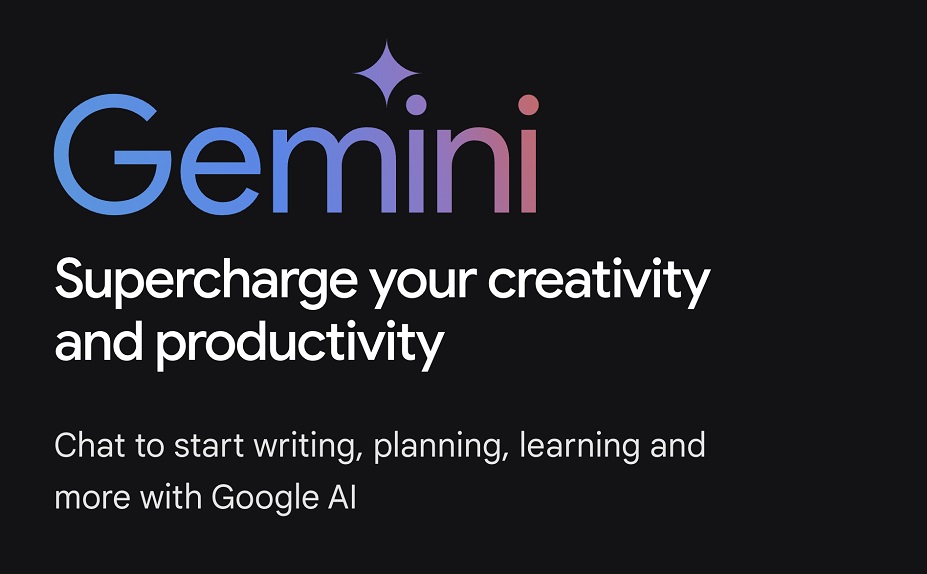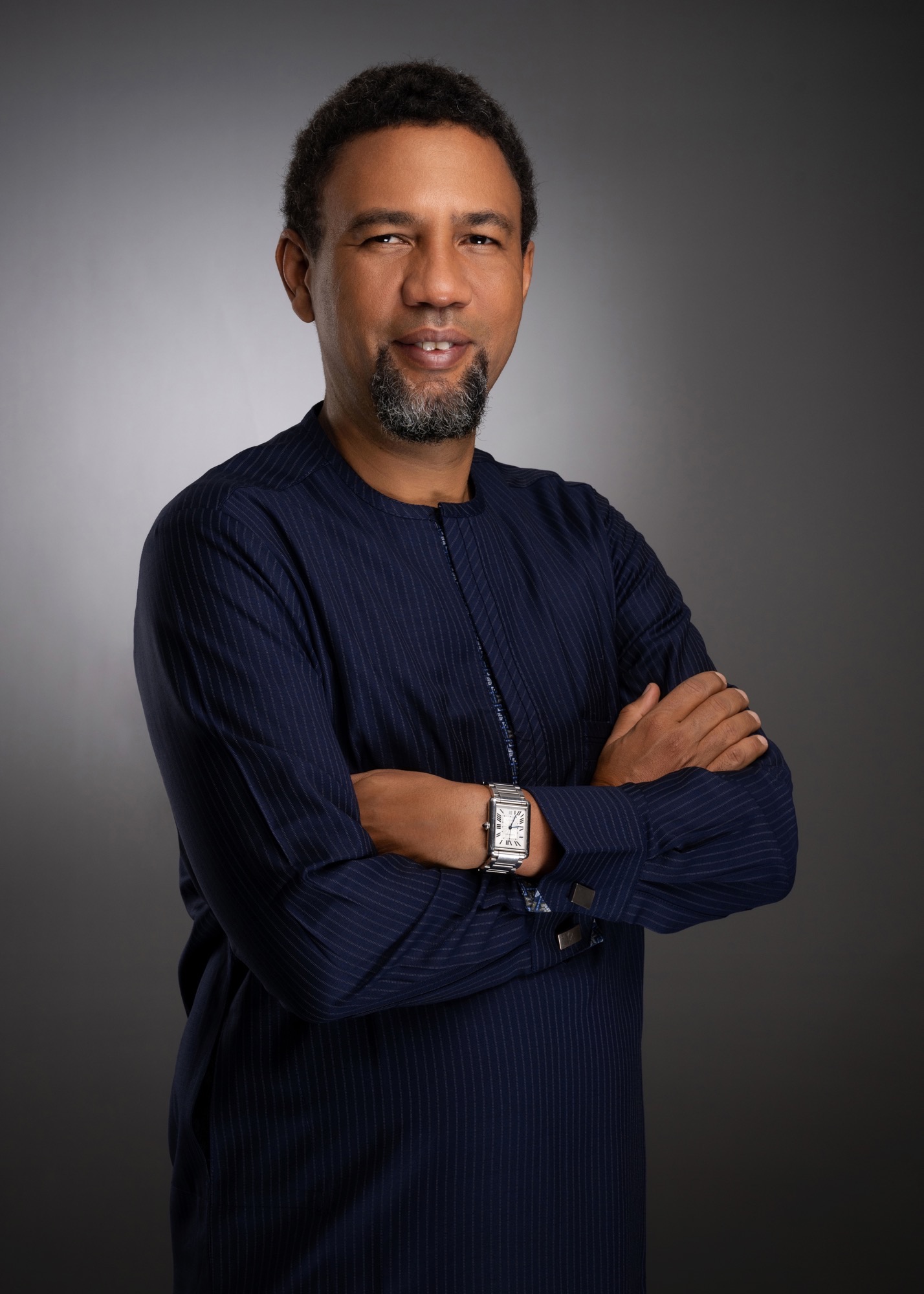Telecom
6 Ways Gemini Can Power Your Journey to Become Africa’s next Global Music Star

The pulse of African music resonates worldwide. Fueled by the success of top sensations like Burnaboy, Davido, Tyla and Wizkid, a new generation of creatives is bursting onto the scene.
But navigating the music industry’s complexities can feel daunting – especially without the right know-how and tools. That’s where Gemini, Google’s collaborative AI-powered tool, steps in as your ultimate guide.
Imagine having an always-available industry insider at your fingertips. Whether it’s demystifying music royalties, staying ahead of Afropop trends, or strategizing your next creative move, Gemini empowers you with the knowledge and insights you need to make your mark. Ready to unlock your global music potential?
Here are 6 ways Gemini can be an ally on your journey:
Building Your Tribe: In vibrant music communities like the ones in Lagos, Johannesburg and Nairobi, it’s not just about who you know, but how you connect. Gemini helps you go beyond networking basics. Instead of just attending events, let’s get strategic. Ask, “How do I initiate meaningful conversations with music producers online?” or “Help me write an application essay for an artist mentorship program.”
Igniting Your Creative Spark: Facing a creative block? Gemini can reignite your inspiration. “Suggest lyrical rhymes for a song with an empowering theme.” Need to broaden your sonic palette? “I’m feeling musically adventurous! Suggest some unusual traditional African instruments I could play around with” Gemini is your brainstorming partner, ready to push your artistic boundaries.
The Power of Your Story: Your brand is more than a logo. It’s how you connect with your audience. Gemini can help you find your voice: “Help me craft an artist bio that captures my passion for social change through music.” Need to up your social media game? “Show me how other African artists effectively use TikTok.”
Decoding the Music Business: The music industry can feel like a maze – contracts, copyright laws, and navigating key players often requires insider knowledge. Instead of feeling overwhelmed, ask Gemini to break it down. Ask straightforward questions like, “If a song plays in a movie. Does the singer get paid for that? Explain like I’m 5?” and let Gemini explain it in a way that you’ll understand. Use the Google “G” button to double check if you need extra help.
Owning Your Look: In the world of music, your style speaks volumes. Gemini helps you explore: “How can I blend traditional Nigerian textiles with contemporary fashion trends?” Need inspiration? “Burna boy and Sho Majodzi are famed for their unique fashion sense. Help me find a bold, colourful outfit inspired by their style. I am 6ft tall and love hats.” Let Gemini be your image consultant.
Beyond the Music Videos: In the digital age, visuals amplify your message. Gemini can spark your video concepts. “Brainstorm music video ideas that celebrate the everyday beauty of Lagos.” Need help with the nuts and bolts? “What are the basic elements of a music video treatment?”
The Journey is Yours, Gemini’s Got Your Back
Becoming a global music star demands talent, grit, and the willingness to learn along the way. Gemini can’t guarantee fame, but it can provide knowledge, fuel your creativity, and help you tap into the resources needed to propel your career forward. So the next time you’re researching artist contracts, building your fanbase, or brainstorming your next music video, open your browser and type gemini.google.com, and Gemini will be your guide and partner in this thrilling musical adventure.
Telecom
NCC Claims to Have Eliminated Unregistered SIMs from Telecoms Networks

Nigerian Communications Commission (NCC) has said that it has successfully eliminated users of unregistered subscriber identity modules (SIM), from the Nigerian telecommunication network, a development that can boost national and cyber security.

Eng. Aminu Maida, executive vice chairman of NCC,
Eng. Aminu Maida, executive vice chairman of NCC, who disclosed the information at a media briefing in Abuja on Monday, said, however, that it was beyond the scope of the agency to control the names with which some customers used in registered their SIMs.
The NCC CEO pointed out that while the commission had successfully removed unregistered SIMs from its network, some strange names being attached to some of the subscribers reflect what the owners used while registering with their operators.
“No unregistered SIM is operating on the network as of today, but there may be people using names they did not register with, apparently to mask their identities. We cannot control the names attached to each SIM, as they reflect what the owners used at the time of registration with their respective operators,” the EVC said.
“While NCC cannot control that behaviour, it is to be noted that it is an offence to use fake names to make or receive calls in Nigeria,” Maida warned.
The EVC, however, said that the commission has put necessary measures in place to ensure sanity and stability in the industry so that every user can determine the best network operator to patronise based on performance, service delivery and charges.
He said the commission would, in September this year, launch a public map to show subscribers which of the telecoms networks provides the best service and tariff plan to determine which to patronise based on their locations.
Mr. Maida said for the industry to make the required progress and serve the interests of the people, there is a need for a fresh injection of capital from outside the industry, adding that the commission had already revised a series of good governance guidelines to guide operators in the industry.
According to him, the guidelines are aimed at promoting transparency, accountability and boosting investors’ confidence and customers’ trust in the industry.
He said, “The need for good corporate governance guidelines requires that operators in the industry must provide audited reports to boost investors’ confidence and earn the trust and confidence of their customers”.
The ECV explained that the commission approved the recent tariff hike for the industry due to the fact that there had not been any cost-reflective tariff adjustment for a decade, adding that the commission was mindful of the need to protect the interests of both the operators and Nigerian subscribers.
On the issue of threats to telecoms infrastructure nationwide, the EVC announced that he would soon meet with governors to discuss the need for them to team up with NCC to protect telecoms infrastructure in their domains and to also eliminate multiple taxes on the operators so as to improve service delivery and ensure national security.
Telecom
Aliyu Aboki Applauds Broadband Mapping as About Expanding Opportunity in Africa

The West Africa Telecommunications Regulators Association (WATRA) has commended Nigeria for its exemplary leadership in broadband infrastructure mapping, following the successful ITU Africa Broadband Mapping (BBMaps) National Event recently held in Abuja.

The national event marked a key milestone in the pilot phase of the Africa-BB-Maps initiative, a flagship project of the International Telecommunication Union (ITU), implemented with funding from the European Union. The four-year (2025–2028) programme aims to support eleven Sub-Saharan African countries, including Nigeria, in establishing harmonized national broadband mapping systems to accelerate digital development and investment.
WATRA’s Strategic Engagement
Representing WATRA at the event, Mr. Ruffus Samuel, Principal Manager for Partnerships, contributed to a high-level session titled “Context and Current State – Intervention by International Partners”. WATRA highlighted the importance of broadband mapping harmonization across West Africa, stressing its potential to serve as a foundation for smart regulation, infrastructure investment, and regional digital integration.
WATRA Executive Secretary Aliyu Yusuf Aboki reaffirmed the organisation’s commitment to working closely with national regulators such as the Nigerian Communications Commission (NCC) to promote coordinated approaches to infrastructure mapping.
“Nigeria’s robust and transparent broadband mapping system stands as a model for the West African region,” said Mr. Aboki. “Through data-driven policymaking, we can close connectivity gaps and lay the groundwork for an inclusive digital economy.”
Nigeria’s Role as Regional Leader
The event spotlighted the NCC’s broadband mapping framework as a leading example for Africa. Participants from across the continent acknowledged the NCC’s technical capacity and policy foresight, underscoring Nigeria’s growing role in shaping regional ICT strategy.
The opening ceremony was presided over by Dr. Aminu Maida, Executive Vice-Chairman and CEO of the NCC, with notable participation from:
- Dr. Cosmas Luckyson Zavazava, Director, ITU Telecommunication Development Bureau
- Zissimos Vergos, Deputy Head of EU Delegation to Nigeria
- Inga Stefanowicz, Head of Green and Digital Economy, EU Delegation
- Senior representatives from ITU, ECOWAS, and national stakeholders
Key Recommendations and Outcomes
- Stakeholders recommended the creation of a National Broadband Mapping Task Force chaired by the NCC to coordinate data standards, governance, and updates.
- WATRA emphasized the importance of regional interoperability and pledged continued engagement with ITU, NCC, and development partners.
- The event underscored the necessity of collaboration among governments, regulators, infrastructure owners, and technical partners to ensure the reliability and usefulness of broadband data.
Toward Regional Digital Transformation
The Africa-BB-Maps initiative is aligned with the Africa–Europe Digital Regulators Partnership and the EU Global Gateway Strategy, both of which promote sustainable digital infrastructure development and cross-border cooperation. WATRA plays a critical role in translating these goals into actionable frameworks for its 16 member states.
“This initiative is more than mapping—it’s about enabling investment, expanding opportunity, and achieving our collective digital aspirations,” Mr. Aboki concluded.
Telecom
MTN Group Restructures Executive Team, Appoints Toriola VP for Francophone Africa

MTN Group has announced a restructuring of its executive leadership team to strengthen the implementation of its Ambition 2025 strategy and drive long-term growth across key markets.

The telecommunications giant disclosed this in a statement on Monday, noting that the changes are aimed at enhancing operational efficiency and accelerating digital inclusion across Africa.
According to the statement, Dr Karl Toriola, Chief Executive Officer of MTN Nigeria, has been appointed Vice President for Francophone Africa, effective Nov. 1, 2025.
He will oversee operations in Cameroon, Côte d’Ivoire, Benin and Congo Brazzaville, while retaining his role as CEO of MTN Nigeria.
MTN said the appointment reflects its confidence in Nigerian leadership and underscores Nigeria’s strategic importance to the Group’s overall success.
Under Toriola’s leadership, MTN Nigeria became the first telecommunications company to attain ₦10 trillion in market capitalisation, driven by strong financial performance, innovation and operational excellence.
Toriola previously served as Vice President for West and Central Africa between 2015 and 2021, overseeing 13 countries.
Commenting on the development, MTN Group President and CEO, Ralph Mupita, said the leadership changes would support the accelerated execution of the Group’s strategy beyond 2025 and enhance value creation for stakeholders.
“These changes illustrate the depth of talent and experience across the Group,” Mupita said.
The restructuring aligns with MTN’s strategic focus on three core platforms: Connectivity, Fintech and Digital Infrastructure.
The Group said it is intensifying efforts to expand home broadband services, simplify digital offerings, scale financial services through a digital-first approach, and invest in fibre networks, data centres and AI-driven efficiencies.
MTN reaffirmed its commitment to leading digital solutions for Africa’s progress, noting that the leadership evolution is a key step towards achieving its long-term vision.

 Telecom2 days ago
Telecom2 days agoNCC Launches Nationwide Campaign to Defend Nigeria’s Digital Lifelines

 General News2 days ago
General News2 days agoNCC Moves to Protect Consumers, Enforce Accountability in Telecoms

 News2 days ago
News2 days agoCAC Delists 247 Firms Over Invalid Registration Claims

 General News2 days ago
General News2 days agoSamsung Launches the Sleek and Durable Galaxy A07 in Nigeria

 Telecom2 days ago
Telecom2 days agoGufwan Commends NCC for Sensitisation Workshop on Digital Citizenship for Persons with Disabilities

 General News2 days ago
General News2 days agoNGF Plans Investopedia to Showcase Investments in 36 States

 Telecom12 hours ago
Telecom12 hours agoNCC Claims to Have Eliminated Unregistered SIMs from Telecoms Networks

 General News12 hours ago
General News12 hours agoVirtual Reality in Healthcare: Nigeria’s Untapped Opportunity for Training, Patient Care, and Medical Innovation


























